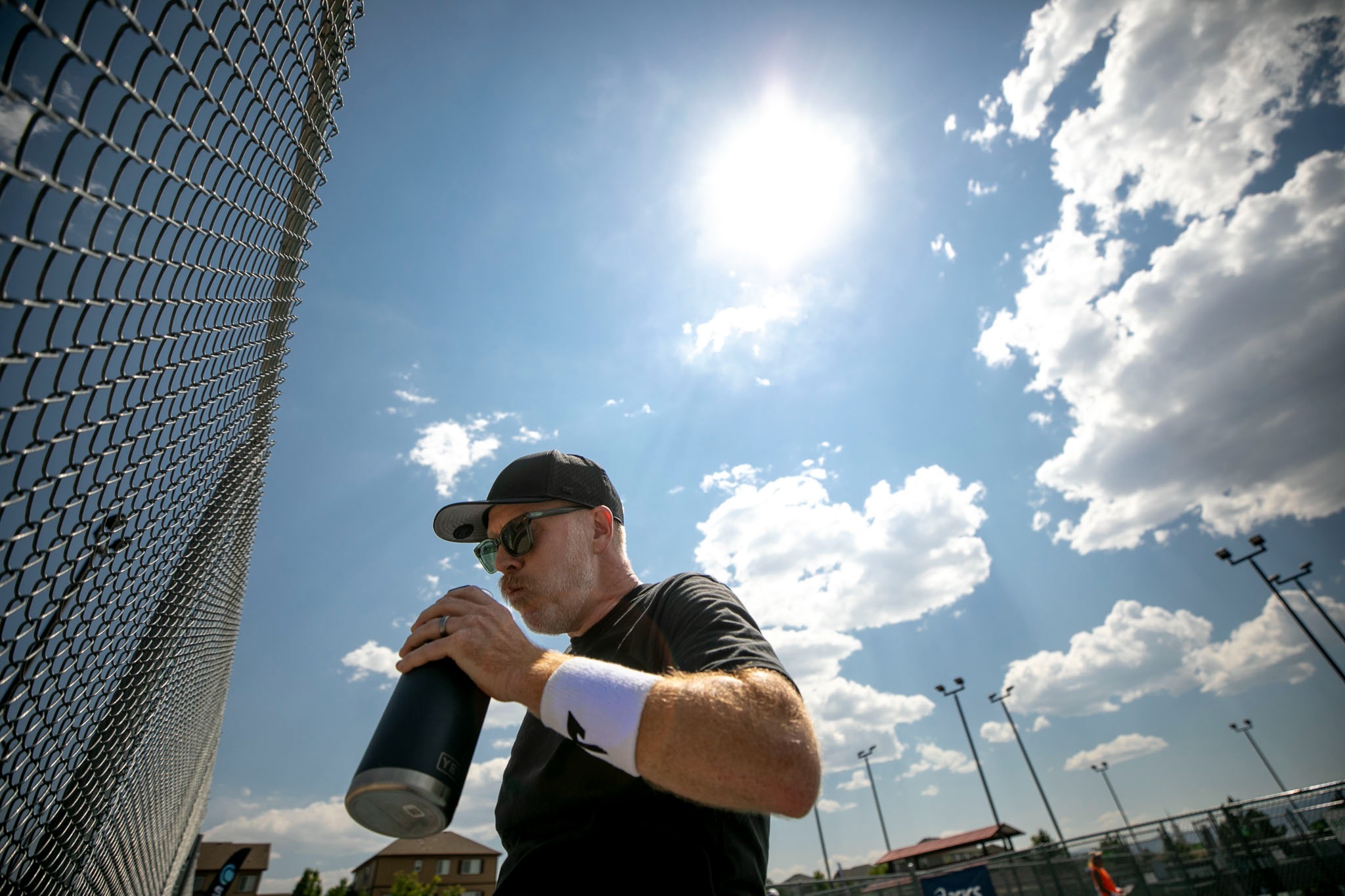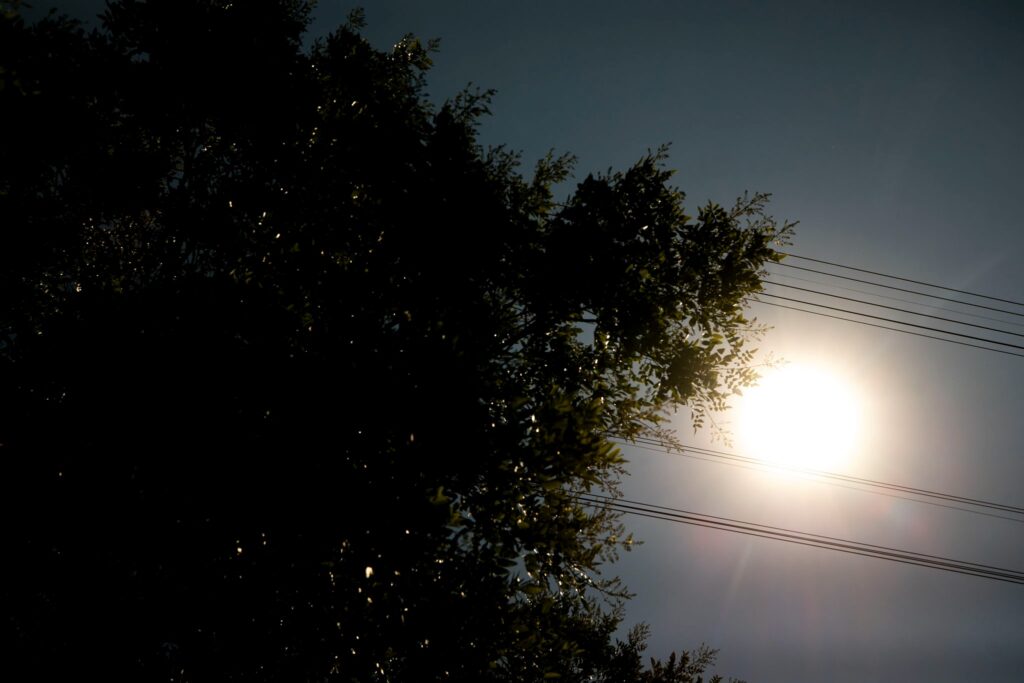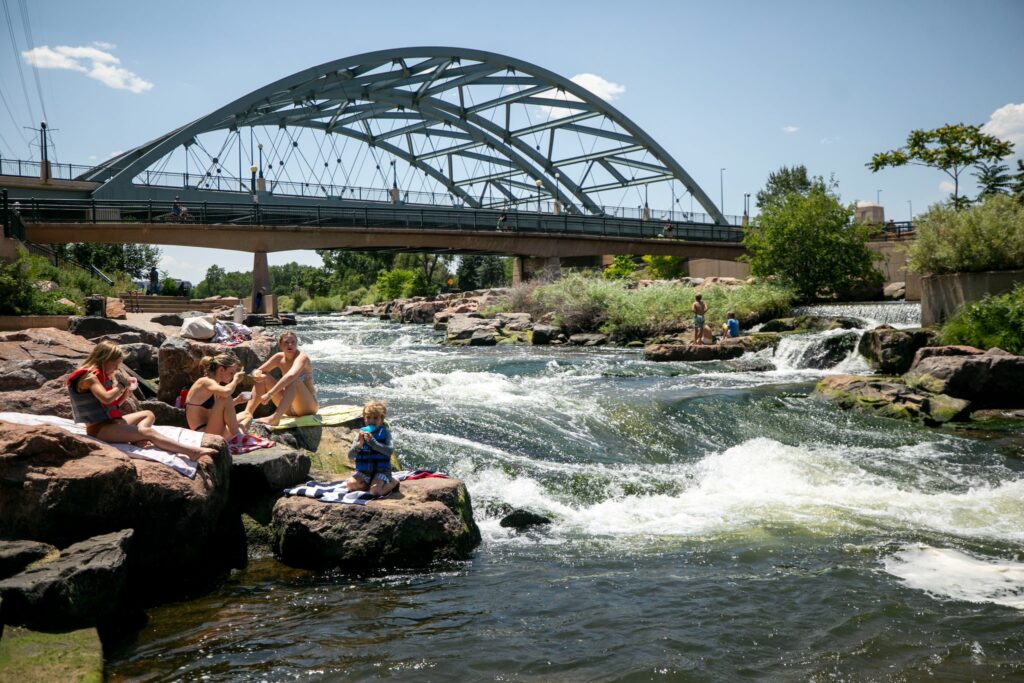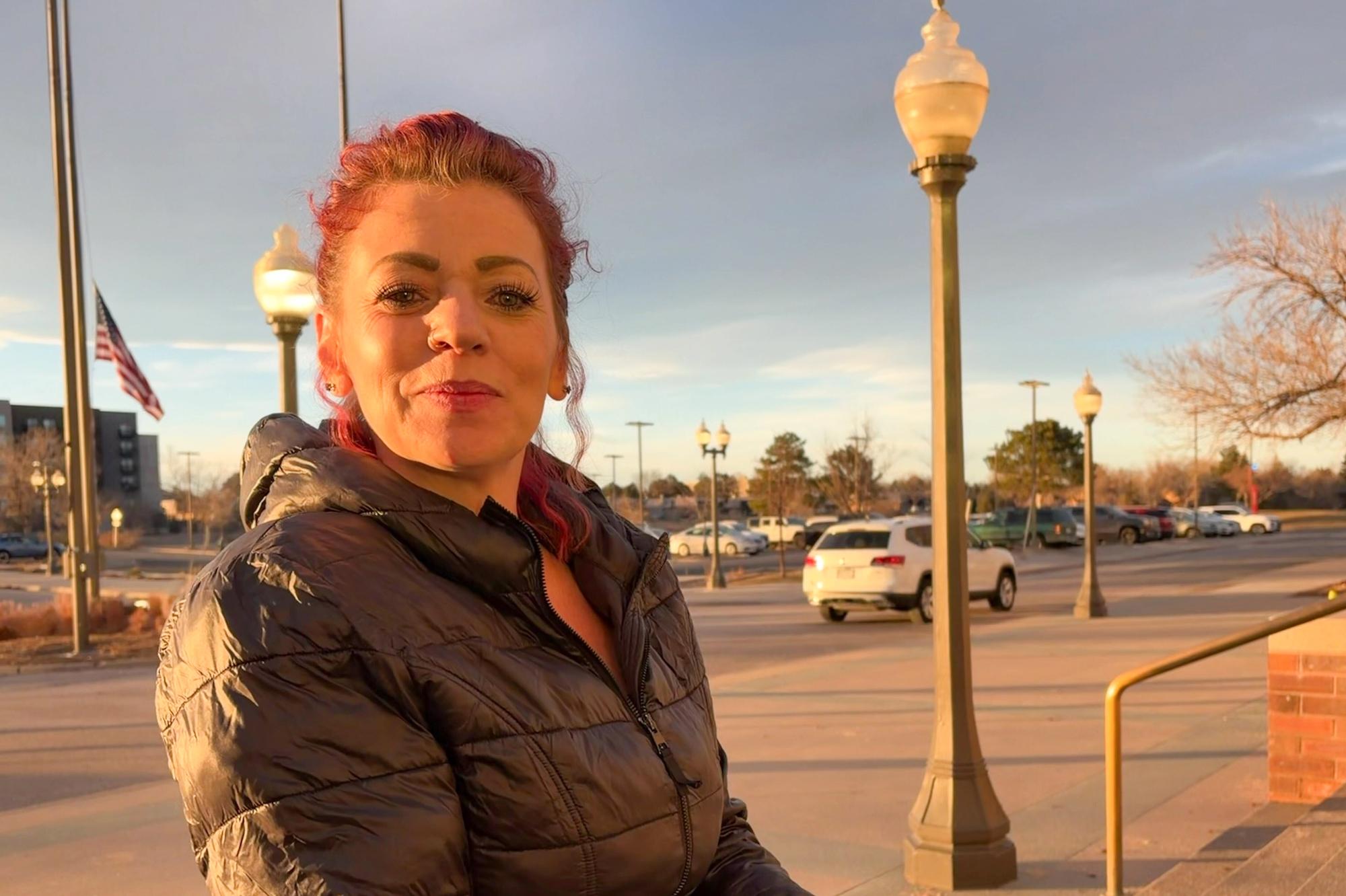
Recent summers in Colorado have been unprecedentedly hot. Historically, temperatures in the 90s and 100s have been rare for Denver. But this summer has already brought several long-lasting heat waves, and experts say that will be the norm for the foreseeable future.
The brutal temperatures have prevented Michele Fry, a Denver retiree, from spending as much time outdoors with her husband as she would like.
“We’ve basically been indoors most of the summer,” she said.
Denver city officials are also feeling the heat, so one agency put together a brain trust of city employees, nonprofit leaders and community advocates to explore what solutions the city can pursue as the state continues to roast.
“I remember when I lived in New Jersey, before coming to Denver, everyone said, ‘Oh, bring your winter jacket, Denver's so cold,’” said Lis Cohen, the manager of Denver’s Office of Climate Action, Sustainability and Resiliency. “And I think people don't necessarily think of heat when they think of living here or visiting Denver, and it's something that we need to plan for.”
For the last few months, Cohen has been helping organize a series of “heat summits,” to collect ideas from the community about addressing extreme heat, with the ultimate goal of developing actionable solutions.
Heat summit attendees brought a variety of ideas to the table
The city held four of these summits — each aimed at different groups. No idea was too wild, as evidenced by the invitation organizers sent to the Denver Zoo Conservation Alliance.
“They have some really interesting things that they have to do to help keep their animals safe when it gets hot,” Cohen said. “They have misters, for example, for some of their bighorn sheep.”
One of the heat summit meetings was aimed at community advocates and neighborhood associations. Nolan Hahn, president of the Alma Lincoln Park Neighborhood Association, attended to advocate for the creation of more shade.
Hahn wants to see Denver’s building code reformed, arguing that the city’s current policies aren’t built with heat in mind. He said the current rules don’t encourage buildings that create shade in Denver’s dense urban centers.
“If you go down to New Orleans, a hot climate, and they have balconies that overhang the sidewalks. They don't provide full shade, but they do, at the right time of day, provide you some good shade while you're walking down those streets,” Hahn said. “It seems like we're building our city for a cold environment that we no longer have.”
At the city’s last heat summit in July, people who attended prior discussions gathered one last time to finalize which proposals the city should champion.

Brenda Negrette, a bilingual program associate with the Park People, said she wants to see the city continue to expand its tree canopy, especially in historically disadvantaged neighborhoods.
“These communities have continuously been disregarded, treated as though they're not there, displaced,” she said. “Especially in our Denver communities, you can see that through gentrification.”
Candise Johnnie, meanwhile, wanted to make sure the city keeps vulnerable populations in mind in its solutions, namely elderly people. She said increasing in-person programs to raise awareness around heat is something that would benefit senior citizens in particular.
“I love the idea they were, I don't know, they were handing out, they made cooling kits to hand out and I think that's a great idea,” Johnnie said. “It was a pack to go on your neck, so you could be a little bit cooler, maybe a spritz bottle, and then some sheets, some informational sheets on what to do when it's very hot.”
The Office of Climate Action released its list of agreed-upon suggestions from the Heat Summit meetings on August 20th
The list of solutions includes the ideas Negrette and Johnnie proposed, plus several others. The group split the recommendations into three categories: programs, policies and partnerships.
Relatively straightforward changes include increasing funding for cooling options, such as public fountains, heat pumps and temporary air conditioning. The group is also calling for grants that encourage people to develop creative solutions to the heat crisis.
“I think some of the creative things that were said I think falls into that category,” Cohen said. “We even talked a little bit about a mobile cooling center. I was wondering if we could do something like that, have someplace where people can cool off, especially in the hottest neighborhoods that maybe moves around to provide people cooling relief.”

The group also suggested improving renter protections by requiring a maximum indoor temperature for rental properties, similar to the city’s heating requirements during the winter.
The office said the resources freed up by these recommendations would make the heat more bearable for all people, especially vulnerable populations.
Cohen said the next step toward implementing these recommendations is mapping which solutions can be done in the short-term, and which ones are further in the future. Once that’s sorted, they’ll divvy up the work between nonprofits, organizations and city agencies.
“So we're mapping things out and then we're going to be reaching out to the partners and folks that were involved and those that want to get involved that might not already be involved to enact these solutions,” Cohen said.
Cohen emphasized that these are simply community recommendations. Some may need approval from city council or other agencies before being implemented. But while summer’s almost over, Cohen prepared to keep the issue a hot topic in people’s minds.









